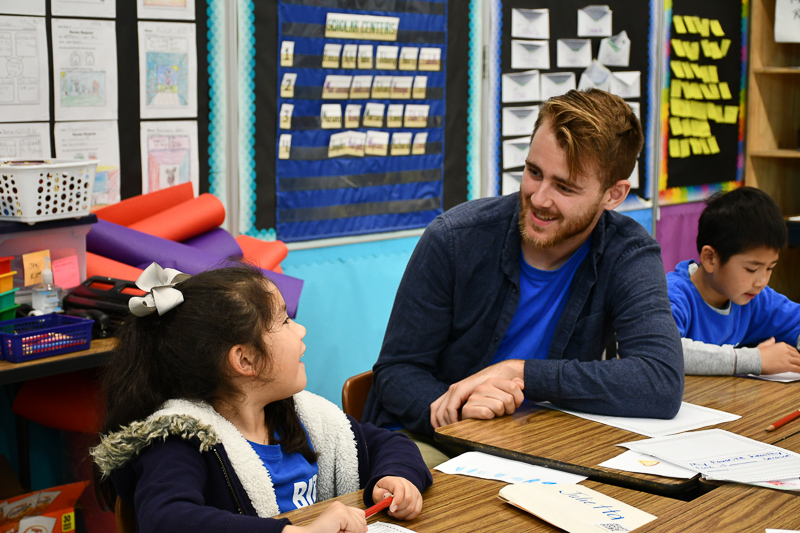Professional Learning that Leads to Increased Teacher Satisfaction … and Scholar Success!

Q&A with Beth Putnam, Assistant Director, Department of Alternative Education, Saint Paul, MN
The mission of the Department of Alternative Education in Saint Paul, Minnesota is to provide focused daytime, extended day, and summer learning opportunities to support student achievement leading to graduation. Power Scholars Academy (PSA) has been a summer learning program at Saint Paul Public Schools for seven years.
In your opinion, what distinguishes Power Scholars Academy from summer camps and other programs?
Power Scholars Academy offers a unique experience to students in both structure and content. Due to collaborative use of funds, scholars attend more hours and days than in most of our other programs, making it possible to teach core academics in the morning with licensed staff and enrichment, including field trips, in the afternoon with YMCA staff. The number of scholars working with each adult is lower than in most other programs, making differentiated one-to-one and small-group instruction more feasible. The literacy curriculum reflects the racial and cultural identity of students who attend, and data shows it is successful in meeting its intended results. As a bonus, scholars get to take books home.
What elements of the PSA program are particularly conducive to the success of scholars and educators?
The PSA curriculum, including assessments, supports teachers in knowing exactly what each scholar needs. Staff receive extensive training, materials are high interest, and scholars are able to do interest- and community-based experiential learning in the afternoons—these are all benefits leading to success. It is the perfect opportunity for scholars to stay physically active, maintain their academic skills, and develop social and emotional and leadership skills while learning more about their community, other people, and themselves.
How does PSA empower educators during the summer, and is this impact being felt in the school year?
Many of our PSA educators come back year after year. Although the school-year curriculum and instruction may be different than what is used for PSA, what is learned during PSA professional development and throughout the session becomes part of how staff approach and carry out their work during the school year. The close student and staff relationships built during PSA provide a solid basis for those whose work together continues past the session, ultimately increasing student success and staff job satisfaction.

